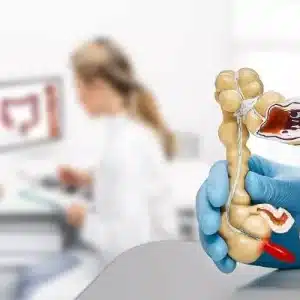Some of the gut bacteria cause weight gain

Some of the gut bacteria cause weight gain
Some of the gut bacteria cause weight gain
A recent study conducted by a team of international researchers showed that toxic substances that leak from the intestines can interfere with the functioning of fat cells and lead to obesity, according to what was reported on the “Science Alert” website.
The results of the study, published in the journal BMC Medicine, open the door to how to deal with excessive and dangerous weight gain in the future.
The substances, called endotoxins, are fragments of bacteria in our gut. Despite being a natural part of the digestive system ecosystem, microbial debris can cause significant harm to the body if it finds its way into the bloodstream.
The researchers wanted to look specifically at the effect of endotoxins on fat cells (adipocytes) in humans. They discovered that key processes that normally help control fat buildup are affected by the substances.
The study was conducted on 156 participants, 63 of whom were classified as obese, and 26 of whom underwent bariatric surgery - an operation in which the size of the stomach is reduced to reduce food intake.
Samples from these participants were processed in a lab where the team looked at two different types of fat cells, described as white and brown.
"Fragments of the gut microbiota that enter the bloodstream reduce normal fat cell function and metabolic activity, which worsens with weight gain, contributing to an increased risk of developing diabetes," says molecular biologist Mark Christian from Nottingaan Trent University in the UK. It appears that as we gain weight, our fat stores become less able to limit the damage that parts of our gut microbiome may be doing to fat cells.”
And white fat cells, which make up most of our fat storage tissue, store fat in larger quantities. Brown fat cells take stored fat and break it down using their numerous mitochondria, just as when the body is cold and needs warmth. Under the right conditions, the body can convert fat-storing white fat cells that behave like fat-burning brown fat cells.
The analysis showed that endotoxins reduce the body's ability to convert white fat cells into fat-like cells and reduce the amount of fat stored.
This process is considered essential in maintaining a healthy weight, and if scientists can learn more about how it works and how to control it, it opens up more potential treatments for obesity.
The study authors also point out that bariatric surgery reduces levels of endotoxins in the blood, which increases its value as a method of weight control. It should mean that the fat cells are more able to function normally.
“Our study highlights the importance of the gut and the fat as important interdependent organs that influence our metabolic health,” says Christian. As such, this work suggests that the need to reduce endotoxin-induced fat cell damage is even more important when you are overweight, as endotoxin contributes to a reduction in healthy cellular metabolism.”
All kinds of factors play a role in how we control our weight on a biological level, and now there's another important factor to consider. As obesity and associated health problems become a worldwide problem, we need all the insight we can get.






